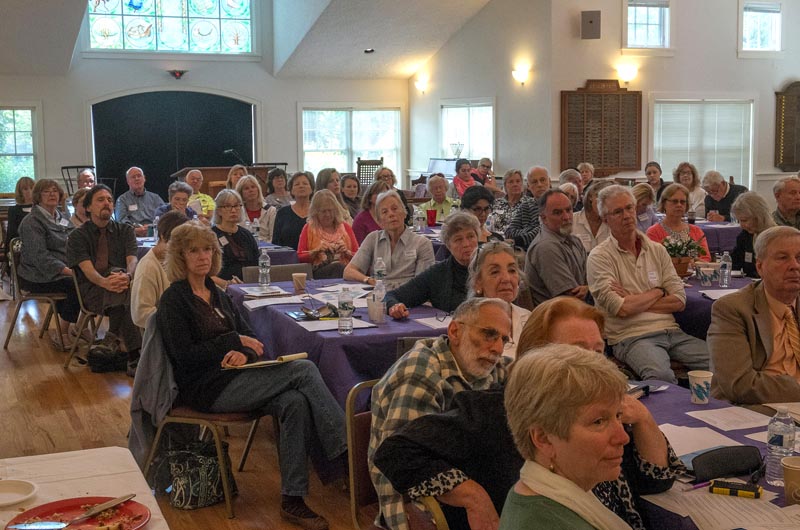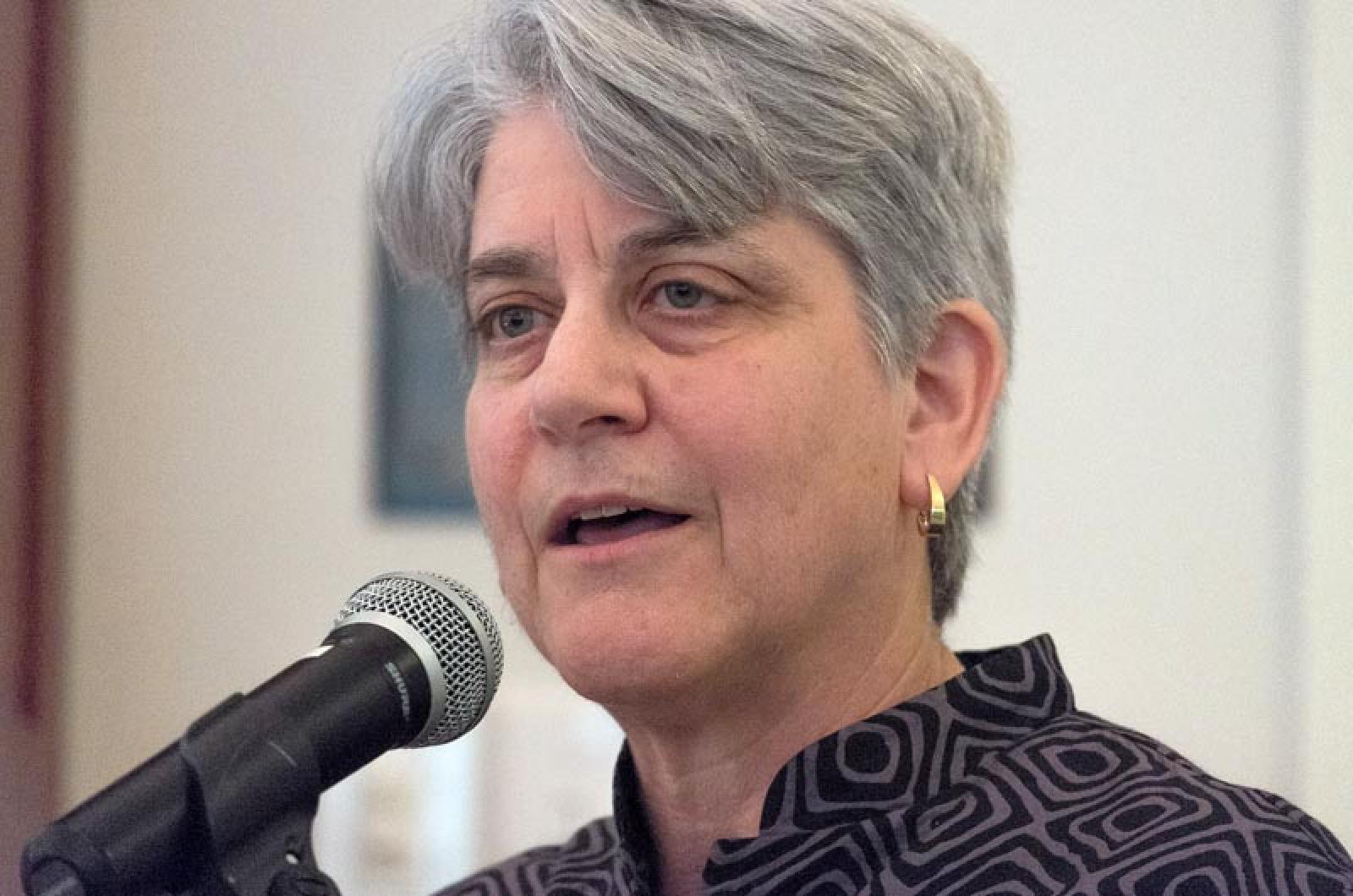As a working task force on the Vineyard begins to prepare for a graying population in the decades ahead, the state Secretary of Elder Services paid a visit to the Island last week to hear about their work in tackling the issue of healthy aging.
Secretary Ann Hartstein said there are unique challenges involved in creating supportive services for the elderly on the Vineyard.
“The rural nature of the model, the fact that it’s built for people to get away from other people and not join in with others makes it a difficult transition for an aging population,” she said. “The things that make it what people want it to be sometimes make it harder to provide support services. The unique challenge is creating these supports without changing the nature of the Island. This is a great start for that,” she said.
Ms. Hartstein attended the annual meeting of the Healthy Aging Task Force last Thursday. The task force has been researching the effects of the aging community on the Island over the past year.

The state secretary praised the work of the task force.
“This healthy aging task force is absolutely fantastic. It’s one of those things every community can benefit from but as an Island makes perfect sense that this should be the direction,” she said. “The physical structure of the Vineyard makes it the perfect place.”
Statistics assembled by Peter Temple, who is leading the healthy aging initiative, suggest that the Vineyard will see a greater impact compared to the rest of the country. By 2060, the number of people over 65 is projected to triple on the Island, while nationwide the number will double. Numbers from the U.S. Census Bureau show that in 2000, there were 2,100 people over the age of 65 on the Island. By 2060, the number is expected to be around 8,000.
The healthy aging task force is examining an array of things that may be needed to accommodate a large population increase in this age group, including transportation initiatives and housing alternatives. “We want to go talk to each town and see if we can adopt bylaws that would allow other forms of housing,” Mr. Temple said. “Most importantly accessory apartments or small units added to your house.”
Ms. Hartstein, who was appointed secretary in 2009, said her office is also focusing on affordable housing and transportation issues, in addition to wellness initiatives.
“One of the things we’re working on is to make sure people stay as healthy as possible for as long as possible,”she said. “And certainly aging is not something that starts at 65. It’s a lifelong process.”
Chronic illnesses, for example, are not a bad outcome of aging but something people must adjust to.
“We have to make sure we’re not equating old age and aging as bad just because there are changes,” she said. “That’s one of the things we’ve been working hard on at elder affairs.”
Ms. Hartstein said nursing homes should not have to be the only option.
“We believe community supports can support people in a community even if they have nursing home-level care needs,” she said, noting that bringing services into people’s homes or creating housing with a more home-like environment are important options. The state and the Island emphasize a community-first approach where “people have equal access to community services as opposed to going in to a nursing home,” Mr. Hartstein said.
Transportation is a key issue, she said.
“We know when seniors stop driving, guess what? Most of the time they can’t use public transportation,” she said. “People who live in communities where they’re driving all of their lives do not stop driving until they can’t drive anymore. If you think they can walk to a public transportation system, it’s not likely.”
Ms. Hartstein reiterated her observation that the isolated nature of the Island poses unique challenges.
“A lot of people come to the Vineyard to get away from everyone else, but that becomes very isolating when you can’t get out,” she said. “I was thinking about the zoning information and that’s going to be a hard sell to change those zoning laws.”







Comments
Comment policy »